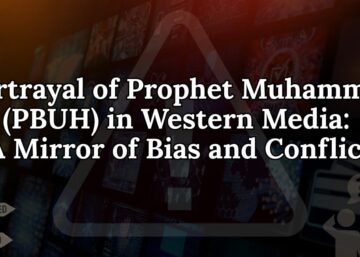Prophet Muhammad (PBUH) was renowned for his gentle and affectionate demeanor toward children. He greeted them warmly, played with them, and even carried them on his shoulders. His compassion was evident when he shortened his prayers upon hearing a child cry, showing concern for the mother’s distress (Sahih Bukhari). The Prophet often embraced and played with children, setting a powerful example of how they should be treated. His interactions with his grandsons, Hasan and Husayn (RA), where he carried them on his shoulders and played with them, are well-documented. The Prophet (PBUH) deeply respected the feelings and emotions of children, making them feel valued and important, never dismissing their concerns as insignificant. His treatment of children with such dignity was rare in that era.
Prophet Muhammad’s (PBUH) teachings regarding children’s rights and his love for them are timeless lessons that resonate even today. Social media has made these teachings more accessible than ever, helping shape children’s and adults’ lives and attitudes. By learning from and emulating the Prophet’s (PBUH) example, today’s children can grow up in nurturing environments that are just and aligned with Islamic values. Platforms like YouTube, Facebook, and TikTok are increasingly used to share content related to the Prophet’s (PBUH) teachings. Child-friendly animated videos, stories, and interactive content make it easier for young Muslims to learn about their faith and the Prophet’s (PBUH) example.
In response to rising Islamophobia, many Muslim scholars and communities emphasize the teachings of the Seerah on peace, mercy, and tolerance. They use the life of the Prophet (PBUH) to counter negative stereotypes and misconceptions about Islam. The Seerah also guides family life, ethics, and moral conduct, with contemporary Muslims seeking insights from the Prophet’s (PBUH) example to navigate modern challenges in family dynamics, ethical dilemmas, and personal development. In many countries, especially during Islamic holidays like Rabi’ al-Awwal (the month of the Prophet’s birth), Seerah competitions are held, including essay contests, quizzes, and speeches, encouraging the young generation to study and reflect on the Prophet’s (PBUH) life. Social media pages and groups offer guidance and support to parents on how to raise their children according to Islamic principles, often sharing the Prophet’s (PBUH) sayings and practices regarding children, helping parents implement these teachings in their parenting.
In modern life, where time is often constrained by work and other responsibilities, some parents struggle to spend as much quality time with their children as they would like. However, those prioritizing this often engage in activities like playing, reading, or simply talking with their children, reflecting the Prophet’s (PBUH) approach. Despite the challenges posed by stress, economic pressures, and the influence of digital media, many parents consciously try to follow the Prophet’s (PBUH) example. His affection toward children serves as a powerful example for parents today. While modern life presents obstacles, by continually drawing inspiration from the Prophet’s (PBUH) example, parents can help ensure their children grow up feeling loved, valued, and secure, just as the children around the Prophet (PBUH) did.



